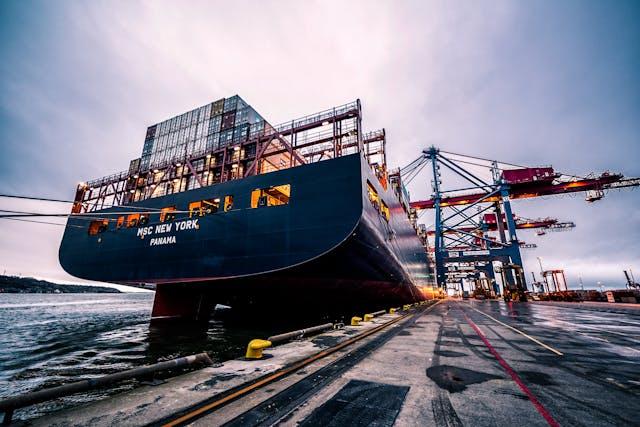How is International Logistics Different from Domestic Logistics?
Regarding logistics, it’s easy to think that moving goods across borders is like moving them across town—but with a longer journey. However, international logistics brings many complexities, from customs regulations to multi-modal transport and fluctuating exchange rates. It’s not just a matter of distance; it’s an entirely different ballgame requiring expertise, precision, and much more paperwork.
Understanding the differences between international and domestic logistics is crucial for businesses that want to optimise their supply chains. Whether new to importing or exporting or just looking to improve your logistics strategy, having the proper knowledge will save you time, money, and stress.
Here’s everything you need to know about how international logistics services differ from domestic ones and why working with a trusted logistics provider like Worldwide Customs & Forwarding Agents can make all the difference.
Key Takeaways
- International logistics involves navigating complex customs regulations and multiple compliance requirements.
- Shipping methods for international goods vary significantly from domestic, with sea and air freight options introducing different cost structures and transit times.
- Documentation for international shipping is far more extensive, requiring customs declarations and specific certificates.
- Costs and risks are higher in international logistics due to duties, taxes, and potential delays, while domestic logistics tends to be more predictable and straightforward.
- A logistics provider with domestic and international expertise can streamline your operations and avoid costly errors.
Critical Differences in Regulations and Compliance
Customs and Border Control
You must consider customs regulations and border control when dealing with international logistics. Every country has its own import and export laws, and you must comply with regulations from the origin and destination countries. For example, the Australian Border Force has stringent requirements for imported goods, including the need for import declarations, duty payments, and quarantine checks.
In contrast, domestic logistics requires little more than compliance with local transportation laws. There are no customs duties; goods typically move from one point to another without facing border inspections or restrictions. This makes domestic logistics simpler and less time-consuming.
Transportation and Shipping Methods
International Freight Options
International logistics offers a range of shipping options, from sea freight to air freight, with each method having advantages and cost structures. Sea freight is ideal for large, bulky items but can take weeks to arrive. On the other hand, air freight is much faster but significantly more expensive, making it suitable for high-value or time-sensitive goods.
Domestic logistics is much more straightforward. Most goods are transported by road, rail, or domestic air freight, with fewer options. Transit times are usually shorter, and delays due to weather or port congestion, which are common in international shipping, are less likely.
Documentation and Paperwork
International Documentation
One of the most significant differences between international and domestic logistics is the sheer amount of paperwork involved. For international shipments, you’ll need a long list of documents, including:
- Bill of Lading: A detailed contract between the shipper and carrier.
- Certificate of Origin: A document that states where the goods were produced, which can affect customs duties.
- Customs Declaration: Required to clear your goods through customs, detailing everything from the type of goods to their value and HS code.
Domestic logistics requires much less documentation—usually just an invoice and a delivery note—making managing it more accessible.
Cost and Risk Management
Higher Costs in International Logistics
International logistics tends to be more expensive than domestic due to several factors. You’ll need to account for customs duties, import taxes, and freight rates, which can vary significantly based on the method of transportation and the destination country. Currency exchange rates also come into play, which can impact the total cost of your shipment.
Domestic logistics is generally more predictable in terms of cost. There are no customs duties to worry about, and transport fees are usually fixed or easily calculated based on distance. While domestic logistics is not without risks—such as traffic delays or weather disruptions—it is generally more manageable than the risks involved in international trade, where delays at ports, customs inspections, or political issues can lead to longer wait times and higher costs.
Key Factors to Consider in International vs Domestic Logistics
Here are some key considerations that make international logistics distinct from domestic logistics:
- Customs Clearance: International logistics requires customs clearance at both the origin and destination, which involves complex paperwork and compliance with local regulations.
- Currency Exchange: For international shipping, fluctuations in exchange rates can affect the final cost. Domestic shipments operate in a single currency, making financial planning more straightforward.
- Insurance Needs: Given the longer distances and multiple transit points in international logistics, more comprehensive insurance coverage is needed to protect your goods. Domestic shipments typically involve fewer risks, so basic insurance may suffice.
- Regulatory Compliance: International logistics must comply with regulations in multiple countries, while domestic logistics is governed only by local laws and standards.
- Transit Time: International shipments can take weeks or months, while domestic logistics is often completed within a few days.
How WWCF Can Help Manage International and Domestic Logistics
When managing logistics—domestic or international—having the right partner is essential; WWCF offers various logistics services tailored to both types of operations. Here’s how they can help:
- International Expertise: With years of experience in handling international shipments, WWCF ensures that your goods comply with customs regulations, manage the required documentation, and minimise the risks associated with cross-border logistics.
- Integrated Domestic Solutions: For businesses operating within Australia, WWCF offers comprehensive domestic logistics services, including transportation, warehousing, and delivery, ensuring your goods arrive safely and on time.
Conclusion
International logistics is far more complex than domestic logistics, involving customs regulations, extensive documentation, and higher costs and risks. However, you can navigate international and domestic logistics smoothly with the right strategy and a trusted logistics provider like Worldwide Customs & Forwarding Agents.
For expert advice and services that streamline your logistics processes, contact WWCF today.

